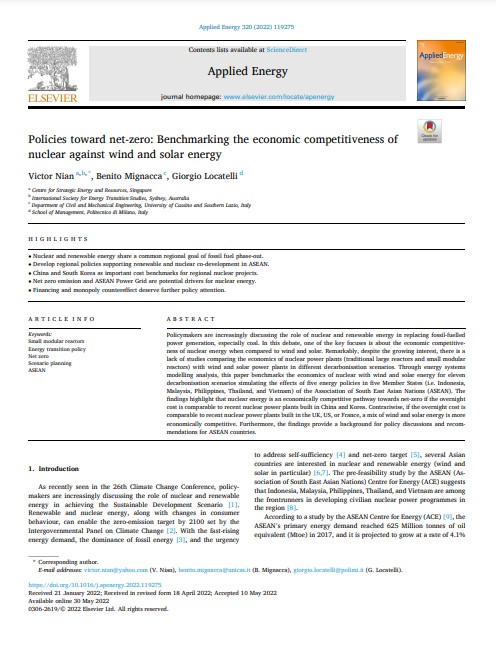
Keyword(s)
Author(s)
a,b) Victor Nian, c) Benito Mignacca, d) Giorgio Locatelli
Country(ies)
Publisher
Published Date
Access
DOI
Policymakers are increasingly discussing the role of nuclear and renewable energy in replacing fossil-fuelled power generation, especially coal. In this debate, one of the key focuses is about the economic competitiveness of nuclear energy when compared to wind and solar. Remarkably, despite the growing interest, there is a lack of studies comparing the economics of nuclear power plants (traditional large reactors and small modular reactors) with wind and solar power plants in different decarbonisation scenarios. Through energy systems modelling analysis, this paper benchmarks the economics of nuclear with wind and solar energy for eleven decarbonisation scenarios simulating the effects of five energy policies in five Member States (i.e. Indonesia, Malaysia, Philippines, Thailand, and Vietnam) of the Association of South East Asian Nations (ASEAN). The findings highlight that nuclear energy is an economically competitive pathway towards net-zero if the overnight cost is comparable to recent nuclear power plants built in China and Korea. Contrariwise, if the overnight cost is comparable to recent nuclear power plants built in the UK, US, or France, a mix of wind and solar energy is more economically competitive. Furthermore, the findings provide a background for policy discussions and recommendations for ASEAN countries.